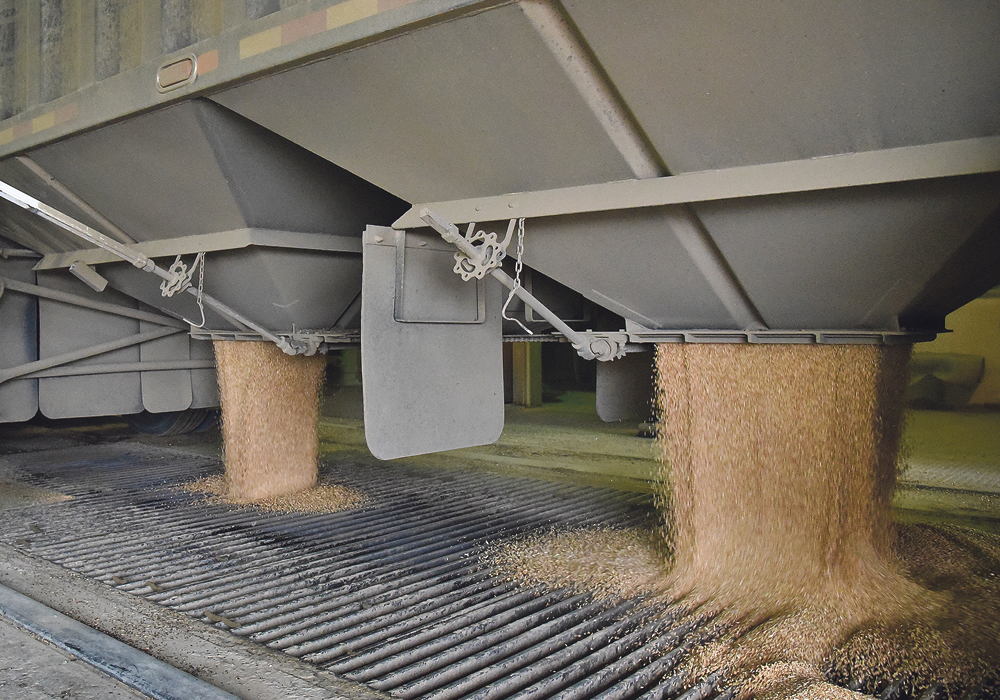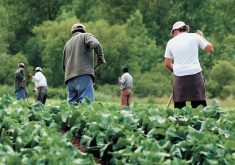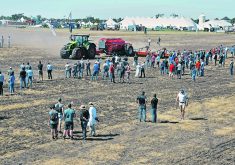Grain elevator operators say they are seeking ways to ensure weigh-scale readouts are provided when grain is delivered
A farmer protection has been lost at some grain elevators — ones that don’t have weigh-scale readouts in the truck unloading zone.
It’s not a deliberate act by grain companies but a product of COVID-19 restrictions, which require non-elevator people to stay outside the elevator office.
Manitoba’s main farm lobby group insists that weigh-scale readings be made visible.
“I think we can all agree that COVID is not going to be over tomorrow,” said Bill Campbell, president of Keystone Agricultural Producers, during the organization’s twice-yearly general council meeting Oct. 22.
Read Also

Farming Smarter receives financial boost from Alberta government for potato research
Farming Smarter near Lethbridge got a boost to its research equipment, thanks to the Alberta government’s increase in funding for research associations.
“It is a producer’s right to see the scale readout when they deliver.”
That’s something that’s already underway in the elevator industry, said Wade Sobkowich, executive director of the Western Grain Elevator Association.
“It’s just a matter of arranging to get it done,” said Sobkowich.
“Elevators are trying to figure out workarounds.”
KAP delegates mentioned a number of elevator locations from different companies that did not have exterior scale readouts that the farmer or truck driver could see.
Farmers had heard varying explanations for why one wasn’t provided.
Sobkowich said the reason it is still a problem is that the issue only arose because of COVID-19, and conditions have been changing during the pandemic as the industry adjusts to various new situations.
“When COVID hit nobody knew what to expect,” said Sobkowich.
The Canadian Grain Commission, which regulates these issues, is taking a flexible approach.
“Given the exceptional circumstances, we expect grain companies and producers to be able to come to a reasonable agreement that balances producer rights with the need to protect employees,” said the CGC in a written response to a question.
“However, we recognize that this may not always be possible. All parties involved, including grain companies and grain producers, should exercise judgement.”A KAP member said his elevator has taken pictures of the scale and other readings and texted them to him.
KAP and the WGEA are united in wanting the CGC to fix unclear rules around grain samples kept at elevators.
The Canada Grain Act says that grain elevators must keep samples of deliveries, and that farmers can use those samples as the basis of challenges to an elevator’s judgment of grade and dockage.
“It doesn’t say for how long,” said Sobkowich.
That’s a problem for both elevator and farmer. Elevators don’t know how long they have to hang on to samples. Farmers don’t know how long they have to challenge the elevator’s judgment.
“There needs to be more clarity,” said Sobkowich.
The easiest solution would be for a farmer to challenge the grading at the time of delivery. However, KAP delegate Shannon Pyziak pointed out that many farmers don’t deliver their own grain.
That instead is done by farm workers or truck drivers, and they can’t be expected to be on top of that sort of a grading dispute. A farmer would need to follow up with a challenge.
Parliament wouldn’t need to amend the Canada Grain Act to set clearer rules. It would be a regulatory change that could be made by the CGC.


















